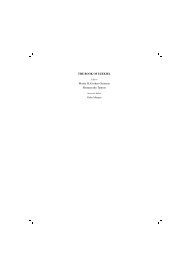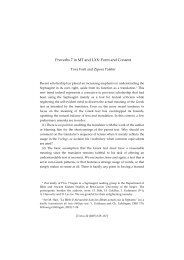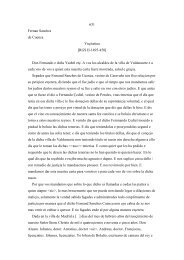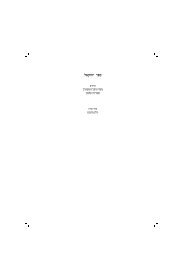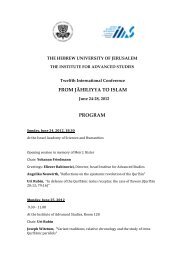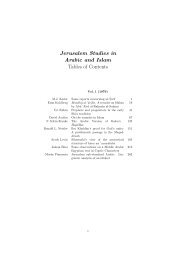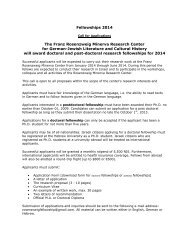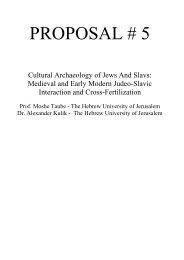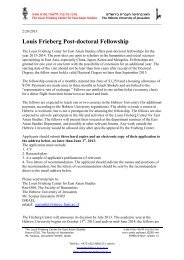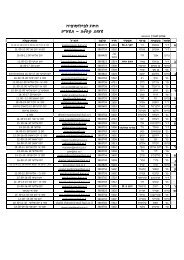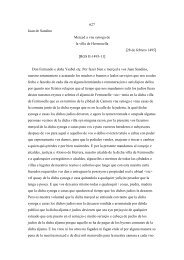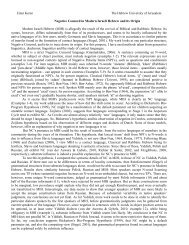Baber Johansen
Baber Johansen
Baber Johansen
You also want an ePaper? Increase the reach of your titles
YUMPU automatically turns print PDFs into web optimized ePapers that Google loves.
7<br />
AbÙ DÁwÙd bear witness to the growing importance assigned to the<br />
transmission of the Prophet’s normative praxis for the understanding of<br />
Islam in law and exegesis. 31 Roy Mottahedeh has pointed out that, by the<br />
eleventh century, the legally relevant reports from the Prophet were<br />
already integrated into the voluminous manuals of law that contained the<br />
doctrines of the various schools of Sunnī law, 32 Insofar the fiqh, the<br />
discipline of Muslim jurisprudence, inherited the religious authority of<br />
the Prophet’s normative practice, the sunna. That is, in fact, what<br />
eleventh-century jurists taught. The norms developed or acknowledged<br />
by the fiqh are presented as an interpretation of the revelation and draw<br />
their religious authority from the QurÞÁn, from the Prophet’s normative<br />
practice, from the consensus of the jurists, or from the methods of norm<br />
derivation from these sources that were developed by the jurists. A<br />
famous maxim says: the jurists are the heirs of the Prophet. 33 This means:<br />
not the genealogy of Quraysh but the understanding of the norms of<br />
religion constitutes the Prophet’s religious heritage.<br />
V. The Fiqh: An Islamic Jurisprudence<br />
How did jurisprudence, fiqh, come to be seen as the representation of the<br />
prophetic heritage? What qualified legal norms to be a source of religious<br />
identity? Basically, I see four reasons for this development. Firstly, the<br />
law’s growing independence from political authorities. From the tenth<br />
century at the latest, and onwards, the political authorities were no longer<br />
considered to be lawgivers. Fiqh, a word that originally meant the<br />
understanding of religious texts and knowledge, denotes, from that<br />
moment on, forms of legal knowledge and reasoning and acquires the<br />
meaning of "jurisprudence." It denotes the activity of deriving legal<br />
norms from revealed texts. When the jurists and the traditionists<br />
defended the autonomy of their field against the Caliphs’ intervention,<br />
their authority as independent representatives of religious knowledge and<br />
understanding increased.



